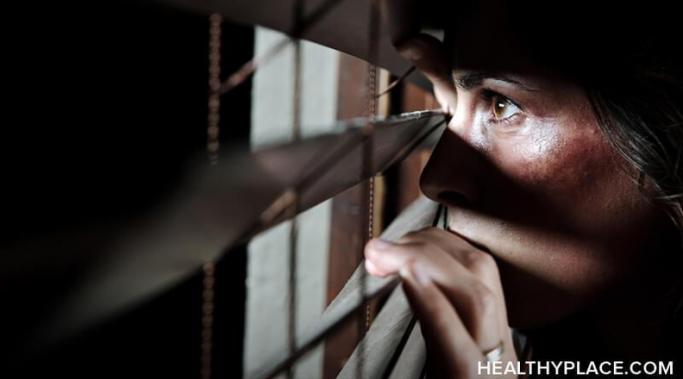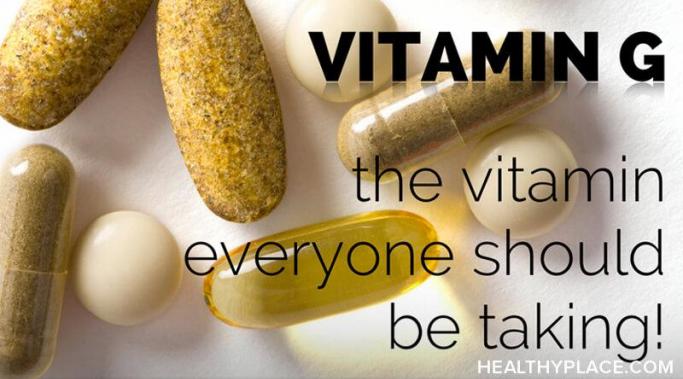Blogs
With verbal abuse, avoidance may be present with the abuser, the target, or both, depending on the situation. This tactic has two sides that can be helpful or harmful based on the contributing factors. Avoidance in verbal abuse is common.
It's the holidays again, and I've found that this is a good time of year to not only say thanks but actively practice gratitude to help my anxiety. I've learned that gratitude can be a very powerful emotion and can actually help reduce stress and lessen the symptoms of anxiety that I experience.
Some people with bipolar seem like they're so angry. Sometimes, I'm one of those people. I don't take this feeling out on other people, but that doesn't mean I don't feel the anger intensely. Let's discuss why bipolar makes me so angry.
There are a lot of new words and concepts out there to describe one's gender identity or sexual orientation, and one of them is bigender. As our community continues to expand and evolve, we develop new language to describe our experiences and identities. You might not have heard of the term bigender before, and trust me, even as a queer person, it can be hard for me to keep up with all the identity words. Today, I want to talk about what bigender means. As a bigender person, I hope you find this helpful.
Survivor's guilt is real. Nowadays, when I open the Instagram app on my phone, I usually see content of a similar nature: graphic images and videos of dead or seriously injured Palestinians. Often, the people in these posts are babies and children, and it is heartbreaking to see the plight of these innocent, young souls. This post is not about siding with Palestine or Israel, but it is about the survivor's guilt that many of us around the world are experiencing today. Let's take a look.
Journaling can be an exceptional tool for managing mental health, and I've found creative journaling tips that have helped me reframe what it means to journal. When hearing the word "journaling," I used to think of "dear diary" entries, but now I believe there are many journaling tactics that are useful in combatting anxiety, depression, and guilt and gauging mental illness recovery progress. I'm excited to share some creative ways I've used journaling tips to assist in managing my mental health.
My eating disorder lessons actually make me feel grateful. Gratitude is a recurring theme that defines the entire holiday season. In fact, this value is thrown around so often in the frenetic build-up to each new year that it's easy to overlook just how powerful gratitude is. When I strip away all those cliché axioms and intentionally reflect on what it means to be thankful, I'm humbled by the sheer amount of blessings in my life. But then, as I lean deeper into self-reflection, I feel a curious swell of gratitude in an area I would normally least expect. This year, I am grateful for the lessons of my eating disorder.
Gratitude is important. Mental health issues can significantly impact an individual's self-esteem, often leading to a cycle of negative thoughts and emotions. In such cases, incorporating gratitude practices into daily life can be a powerful tool for fostering self-esteem and promoting mental wellbeing. In my own journey, I have found gratitude to be one of the most powerful states of consciousness to cultivate. When we look at life through the lens of gratitude, even the most challenging circumstances can be reframed in a positive light.
After enduring childhood trauma and developing posttraumatic stress disorder (PTSD), I battled an intense fear of loss. Not only was I sexually assaulted at the young age of four, but that same boy threatened my safety as well as my family's. If I told anyone what he did, he would retaliate. While I can rationalize in adulthood, my young brain couldn't comprehend the validity of his menacing warnings. I truly believed my family's lives depended on my ability to stay quiet. Now, in trauma recovery, I fear loss.
Self-awareness matters when dealing with anxiety. In the midst of anxiety, my mind creates a mess of thoughts. I cannot figure out when they started, how they began, or how to end them. This struggle sometimes leads to unhealthy temptations and behaviors. After nine years of anxiety treatment, I learned a very helpful skill to understand and change my thoughts and my behaviors when I'm anxious: self-awareness. In this post, I discuss four ways that my self-awareness around anxiety has improved.










Special thanks for the "trying". One of us has said "it is by trying that we succeed."